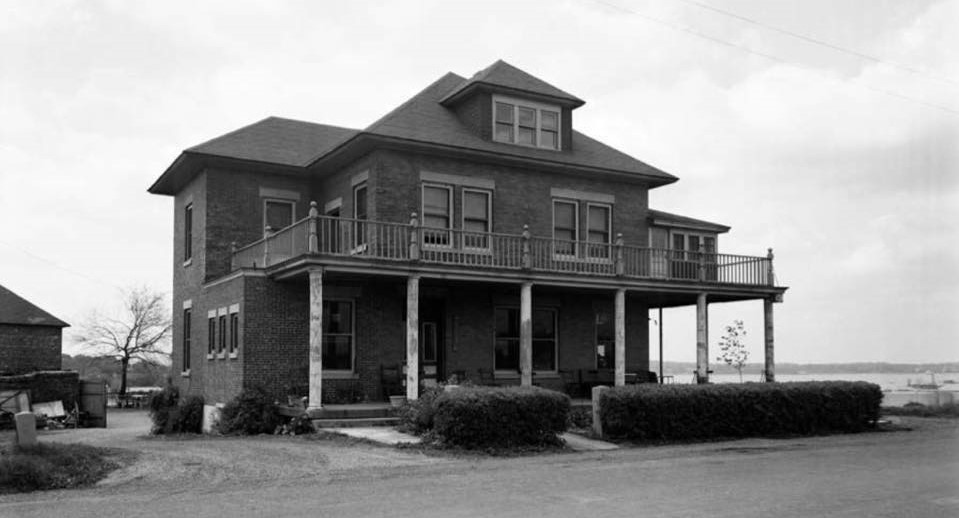If you take a good look at the old photograph of the Stromboli Hill Tavern, and then take your car up Pleasant Avenue to look for the Happy Montessori School, you will recognize the building at No. 40, for little has changed from the year it was built in 1910.
On the other hand, if you were to travel in a time machine from 1910 to the present, you would be totally disoriented, for its surroundings have been altered beyond recognition.
Early maps indicate that Pleasant Avenue was desirable enough to attract a cluster of six or seven houses at the top of the hill, which was a lot of houses in the 19th century, especially given the fact that going up and down that hill without a car was surely not so pleasant.
Of course, you couldn’t beat the view across the bay, and it was close to the first stores in Cow Neck Village that sprang up around the Mill Pond.
As a bonus, the hill was large enough and flat enough at the top to accommodate a baseball field that was home for the Port Washington Volunteers, one of three local teams that flourished around the turn of the 20th century.
Then, in 1910, after Solomon Cocks inherited his father’s farm that included the rolling hills surrounding Pleasant Avenue, he hired Titus Sand and Gravel to remove sand from the portion of the hill that extended west to Manhasset Bay over where Stop and Shop is today.
It seems that were it not for that cluster of houses the entire hill might have been flattened, for later he put the sand miners to work on the west side of Pleasant Avenue, removing what was known as Hippo Hill.
Today Hippo Hill is the Mill Pond Acres development; and Valley Road, on the east end of the sandpit, is no longer in a valley.
Pleasant Avenue became known as Stromboli Hill, possibly because the steep cliff that was left behind by the sand miners reminded them of Stromboli Island – a volcano rising out of the Tyrrhenian Sea just north of Sicily. Or maybe, it was because the Stromboli volcano was still active, and Pleasant Avenue was destined to become a very happening place again, thanks first to Charles De Mar who built our house on the hill in that same year of 1910.
De Mar had a remarkable resume. He immigrated from Italy in 1896, worked as a night watchman at the Goodwin Sand Bank, rose through the ranks into management, married the boss’s daughter, purchased real estate, built his first house on Mill Pond Road, became a contractor, and invented a metal screen that Ernie Simon said revolutionized the sand industry. He was ultimately remembered most as a restaurateur.
Originally conceived as a hotel, the house on the hill became a residence for his family upstairs and the Stromboli Hill Tavern downstairs. De Mar’s son Anthony became its chef and bartender, and later the manager and owner. In its heyday, it was a gathering place for Port Washington’s Italian community, best known for weekend bocce tournaments that were held in the backyard overlooking the bay.
Large crowds of family, friends, and customers would climb the hill to compete, to eat and drink, and to cheer for their team.
By the 1960s the tavern had fallen on hard times. Harry Hepcat recalls visiting there around that time: “The inside was kind of dark, except near the bar. Seated at one end was a grizzly-looking man wearing a black eye patch. There was another worn-out gent at the other end of the bar, next to a birdcage with a black cat in it. Yes, the cat was in the cage. Why? Because the parrot was flying around free!”
Harry could not resist taking advantage of the 10-cent glasses of beer and ordered a dollar’s worth. It seemed fitting that when he went to the men’s room and looked out the window, he could see a crumbling graveyard through the mist. The graveyard is still there, but a couple of new houses are blocking the view.
Anthony De Mars’s health was failing, he retired, and Stromboli Hill Tavern was abandoned. When put up for sale in 1970, it was a neglected property in a state of disrepair and a prime candidate for a teardown.
Fortunately, the husband and wife team of Uttam and Anrit Sedhi were looking for a new location for the Happy Montessori School and recognized the potential for this old Italian villa with its wide front porch and fluted columns. They purchased the property: she ran the school and he oversaw a major renovation, carefully preserving its historic charm.
What a dramatic life 40 Pleasant Ave. has had. The rolling hills in the back yard were violently destroyed by sand mining and replaced by an impenetrable cliff. Its interior life as a tavern declined from good times as a gathering place for the Italian community to near death as a dive, and was then reborn as a nursery school.
In spite of that turmoil, its solid brick walls and symmetrical design today give it an aura best described as stable, peaceful, and… well, happy.
Ross Lumpkin is a trustee at the Cow Neck Historical Society in Port Washington, www.cowneck.org.




